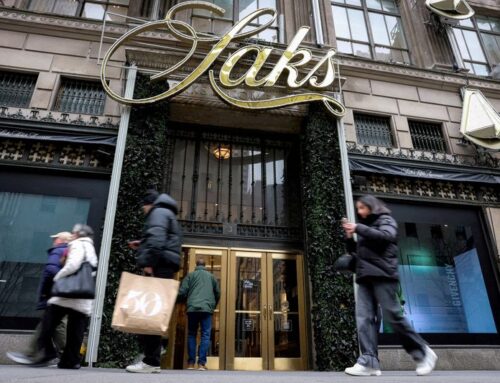Deep divide: The cannabis industry remains split over how many dispensaries a single busin
June 18, 2025
THE MASSACHUSETTS HOUSE unanimously passed a wide-ranging cannabis bill on June 4 that would allow a single business to own double the number of dispensaries currently allowed by law. But the cannabis industry remains deeply divided on the policy change.
In 2017, the legislature capped the number of retail cannabis stores owned by a single entity at three. The intention was to keep bigger companies – particularly those that operate in multiple states – from buying up large swaths of the state’s cannabis market and make it harder for smaller companies or single owners to compete.
The new cannabis bill would raise the cap to six, allowing cannabis operators to purchase an additional license each year until they hit the cap. It would also allow a single entity to own up 35 percent equity in an unlimited number of cannabis businesses (up from 10 percent) before the ownership stake counts towards the cap.
Increasing the cap has been pitched as a way to create more opportunities for bigger companies to buy struggling cannabis stores and thereby provide an exit ramp for failing cannabis businesses that want to sell. But there has been opposition to this change from business owners, non-profit leaders, and even a current commissioner on the Cannabis Control Commission who warn that raising the cap presents a dire threat to locally-owned and social-equity operated businesses.
In April, nearly 60 business leaders and advocates in the cannabis industry signed a letter urging legislators to continue to cap the number of dispensaries any business can own at three. They argued that strong ownership limits in the state are key to fostering a competitive and diverse industry that has a place for social equity business owners.
“It’s going to create pretty catastrophic market conditions for independent small businesses who don’t want to give up some of their…ownership control over to multi-state operators,” said Kevin Gilnack, deputy director of the cannabis advocacy group Equitable Opportunities Now. “And it’s going to undermine the Legislature’s goal of empowering communities harmed by the war on drugs.”
The change could help prevent businesses from having to close their doors and allow owners who are going out of business to preserve their finances, said Ryan Dominguez, the head of the Massachusetts Cannabis Coalition, another advocacy group for the cannabis industry.
The increase in the equity ownership ceiling to 35 percent is meant to bring more investment from bigger companies into cannabis businesses struggling to secure capital.
“We’re just trying to give people and business owners different options on how they want to deal with their businesses,” said Dominguez.
Current Commissioner Kimberly Roy and former Commissioner Shaleen Title both submitted testimony to the Legislature’s cannabis committee in support of keeping the license cap at three. Raising the cap, they argued, could lead to market consolidation, price manipulation, locally owned and operated social equity businesses being undercut by conglomerates with wholesale purchasing power, and other unintended consequences.
“Meeting with equity licensees, I heard overwhelmingly from them in large numbers that they’re highly concerned about the bill out of the house to raise the license cap,” Roy told CommonWealth Beacon. “My concern is about consolidation and the Walmart effect, where you’re left with a few big box stores and not many locally owned and operated ones.”
Dominguez said that raising the license cap from three to six is a compromise. There were bills under consideration that sought to increase the cap to nine or more. It won’t just be multistate operators who would come into the market to gobble up the cannabis companies, but local businesses would be able to merge to become midsized companies, he added.
Gyasi Sellers, owner of cannabis delivery company Treevit, which operates under a social equity license type, supports raising the license cap and the ownership limits. He said his business is hundreds of thousands of dollars in debt and that no one has been willing to buy or invest in his business while the cap on ownership remains. Sellers believes that an infusion of money from a larger company could save his company.
“My entire livelihood, my entire business, depends on this change,” said Seller. “Anything’s better than closing the doors and shutting down the operations. Anything’s better than that. That’s the nightmare.”
The Massachusetts Cannabis Equity Council, a group of 18 cannabis business owners with social equity licenses, has come out against increasing the license cap and argues that this policy change will harm social equity operators and locally-owned cannabis shops the most.
“From an equity standpoint, I have a lot of concerns regarding lifting the cap because it seems to be antithetical to the underlying motivation of keeping the industry a level playing field for all, especially for social equity applicants,” said Kobie Evans, co-owner of Pure Oasis, the first recreational dispensary in Boston and the first Black-owned store in the state.
Evans said that raising the cap could lead to “a Walmart effect” where one company can have six dispensaries and up to 35 percent stake in an unlimited number of companies, giving them more purchasing power. A company with six retail stores can buy larger quantities, negotiate a lower price for cannabis products and therefore sell them at lower prices than a smaller company with fewer stores.
“Multi-state operators already dominate shelf space and capital. Expanding their footprint could wipe out the very businesses the state set out to empower,” said Phil Smith, owner of Freshly Baked Co. of Taunton, another social equity licensee. “I understand why some equity operators may want to sell. It’s hard to stay afloat in this market, and bigger players have the capital to get deals done. But if the state allows growth without guardrails, it won’t be a free market, it’ll be a foreclosure.”
In addition to doubling the license cap, the House cannabis bill would increase purchasing and possession limits for cannabis, restructure the Cannabis Control Commission, crack down on hemp-derived intoxicating products, and loosen existing requirements for medical marijuana businesses. The Senate has not indicated any urgency in taking up the cannabis bill.
Nike John, the owner of The Heritage Club dispensary in Boston and one of the first licensees under the Cannabis Control Commission’s social equity program, has been advocating for the license cap to stay at three. Social equity businesses largely agree on preserving the license cap but aren’t being heard in this debate, she says.
“It seems like they’re doing this without consulting equity operators,” said John. “We’ve reached out, haven’t been able to meet with anybody, and this bill is already here. It’s kind of confusing how this all happened without any consultation of multiple equity operators who have been asking to have a voice.”
Search
RECENT PRESS RELEASES
Related Post



